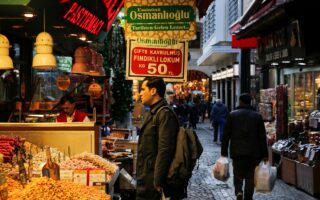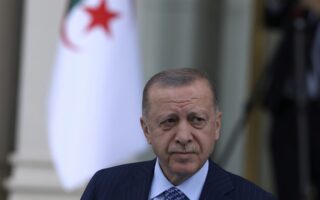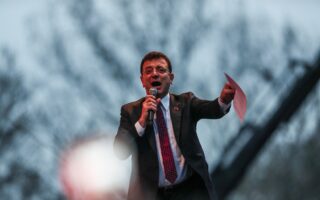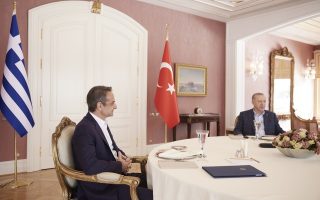Erdogan playing his last hand
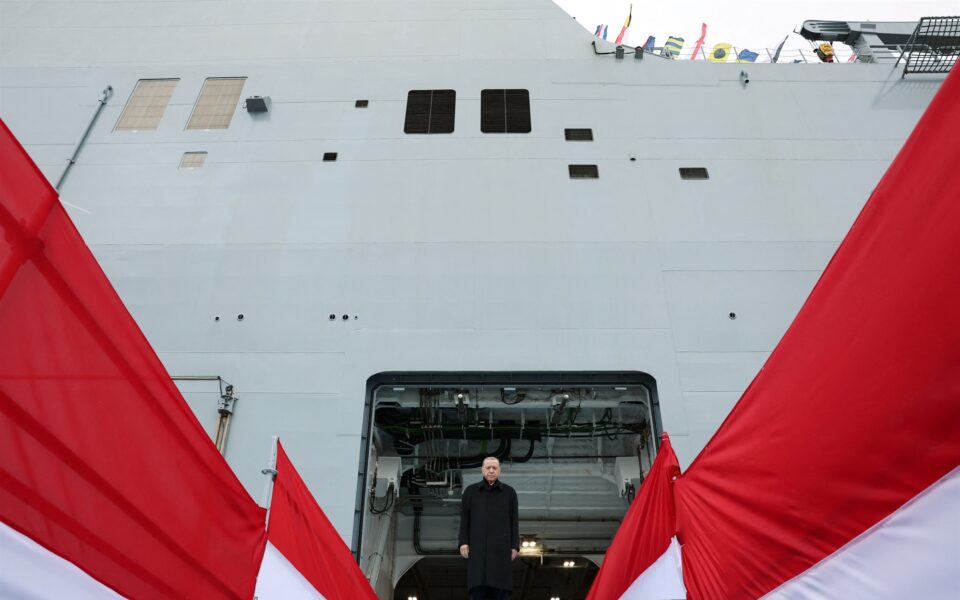
The devastating earthquakes in southeastern Turkey have altered the political landscape in the country to an alarming degree for President Recep Tayyip Erdogan, who nonetheless displays remarkable resilience after more than 20 years in power. He can also boast many positive changes regarding the rights of minorities, especially the Kurds, the liberalization of the economy, the attraction of foreign direct investment, the proliferation of exports, the strengthening of Turkey’s diplomatic footprint, and partial but notable autonomy from the West.
However, many of his successes, especially in the area of the economy and the treatment of minorities, are now in the distant past and have been replaced by Third World authoritarianism, skyrocketing inflation, the weakening of the national currency – which he is fighting tooth and nail to maintain at tolerable exchange rates but after the elections its collapse is predicted – and the retreat in key foreign policy choices, from the acquisition of the Russian-made S-400 missile systems to the retreat in the Eastern Mediterranean.
So what are the strong cards in his hands in this fight to the end? The economy is ailing and investor confidence has been rattled by Erdogan’s methods (the famous Erdoganomics), despite record exports and Turkey’s comparative advantages, including industrial production, cheap labor, and a young population, which could be a catalyst to transform the country into a point of reference in the supply chains that are being formed.
In foreign policy, Erdogan is considered by many of his compatriots as the leader who not only changed the face of Turkey but also made it a major international player, but there are many who distrust his flowery speeches and consider his methods arrogant and dead-end, especially in the overstretching of foreign policy, a consequence of the many and simultaneous fronts it has opened.
They also accuse him of having seriously damaged Turkey’s credibility, of alienating it from traditional partners and exposing it to unnecessary risks, while its neighbors, including Greece and Egypt, are strengthening their regional positions and their role in the plans of the West.
‘Choice for stability’
Erdogan is promoting himself at home and abroad as a stable and responsible choice against an objectively weaker candidate who is representing a motley coalition of six parties – plus the pro-Kurdish Labor Party – which was showing cracks even before Kemal Kilicdaroglu, the leader of the main opposition Republican People’s Party (CHP), announced his selection as their frontrunner.
So here, Erdogan is pitting his government’s sturdiness against a coalition that may splinter after the election, and which in all probability will not have the necessary parliamentary majority to proceed with amending the constitution, which was the coalition’s main priority.
Kilicdaroglu may thus need to lead the country to early elections to change parliamentary percentages. However, this is something that could also be pursued by Erdogan, who is reportedly planning to call elections after the municipal elections in case he prevails, just nine months after the general elections in May.
Erdogan is promoting himself as a stable and responsible choice against an objectively weaker candidate who is representing a motley coalition of six parties
Pharaonic plans
One card that the Turkish president uses is that of projects of the future, declaring this the “Century of Turkey.” This is essentially his own version of a country that claims its rights and expands its spheres of influence and is supposed to retain the power and determination to impose its positions where necessary. And although this is an overly optimistic interpretation of reality, it sits well with a section of the domestic audience.
Around this view, the occupant of the “White Palace” builds the anti-American narrative, even as he attempts a rapprochement with the US in the shadow of the devastating earthquakes. If necessary, he will repurpose it to make his opponent appear as a servant of foreign interests, while his recent attack on the US ambassador was a warning shot against Washington’s possible involvement before and after the election, if the result is narrow and there are allegations of fraud. However, the opposition parties are prepared and will not be discouraged even if the results in the first few hours show a clear victory for Erdogan.
The major national projects and goals presented by the president ahead of the elections are mainly in the field of defense, automotive industry and energy. From the (5th generation?) fighter jet that will be ready in a few years (Americans took almost two decades to develop their own), the helicopter carrier, the first electric car and also the discoveries of natural gas deposits in the Black Sea.
He will capitalize on the above projects to demonstrate his effectiveness, the leaps Turkey has made in his years in areas where it has been lagging behind, and above all, he will try to boost his narrative that Turkey is becoming independent and self-sufficient.
In the economy, he has long relied on handouts to make up for the continuous decrease in the purchasing power of the Turks, and he is offering houses and infrastructure to the earthquake victims.
Crunching the numbers
Focusing on purely electoral realities, let us consider five parameters that will play an important role in the elections: the AKP alliance with two extreme parties, the fundamental Islamist Free Cause Party (Huda-Par), which has been accused of terrorist acts in the 1990s as well as connections with the deep parastate, and the New Welfare Party (YRP) an Islamic tendency political party, led by Fatih Erbakan, Necmettin Erbakan’s son (two parties with a minimal electoral footprint); the inability of Erdogan and Devlet Bahceli, chairman of Turkey’s Nationalist Movement Party (MHP), to present a joint ballot/party list while the opposition succeeded; the Kurds, who support the opposition leader and who will be decisive in parliament for the creation of a majority; Muharrem Ince, a former CHP lawmaker who contested Kilicdaroglu for party leadership earlier, and will compete against Erdogan and Kilicdaroglu, cutting votes from the latter, and on whom Erdogan is betting to lead to a second round of vote that he expects to win; and the young voters, who at the moment seem roughly divided, similarly to the chances of both Erdogan and Kilicdaroglu.
Constantinos Filis is the director of the Institute of Global Affairs, associate professor at the American College of Greece and an international affairs analyst for Antenna TV.
